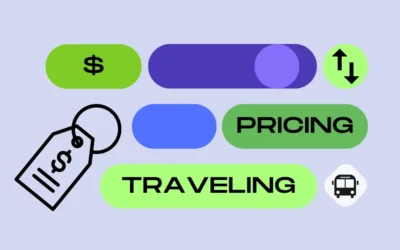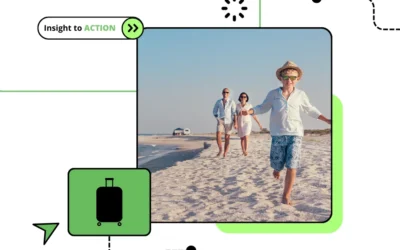No doubt, the use of technology in tourism has become a must and has transformed the way we plan our trips.
Today travelers begin their adventure long before they even choose the destination. Putting together the perfect vacation begins with an online search to compare options, tourist sites, communication routes to get there, attractions, and much more. Digital travelers plan all of this through their mobile devices. According to a study by Google Travel, 74% of users plan their trips through the Internet, while only 13% continue to use travel agencies for it.
Meanwhile, a study by the consulting firm McKinsey showed that since the pandemic, more than 75% of consumers have tried new ways of buying and intend to maintain them in the long term. Mobile apps, virtual tours and online reservation systems have become the basic resources of the tourism sector in order to improve the user experience. From the destination that travelers choose, the planning of activities, to the steps following their return, the entire process uses technology as a fundamental tool.
With travel trends focused on technological advances, the industry has focused on key areas such as:
- The use of consumer data to extract actionable information in a secure way, in order to create increasingly detailed profiles to personalize and streamline the traveler experience.
- Implementing automated tools that can respond to dynamic behavior in real time.
- Adapting your business model and product offering for the new digital traveler.
- Creating a culture of agility and resilience in the face of change.
In turn, the number of potential customers has been increasing due to the reach provided by social media. However, the current uncertainty in consumer confidence adds an additional complication for tourism. The key is to identify trends among your current shoppers and use a series of automated “test and iterate” experiments to find the right points in the customer journey to drive high-value purchases.
Learning and adapting to the needs of digital travelers is now becoming easier through technology. And it is also of great importance to have the necessary tools to process this information, and make smarter decisions that bring more personalized services. Can you imagine being able to accompany any digital traveler from the moment they perform a search on your website? Know from routes, dates and times that are more attractive and thus be able, for example, to develop loyalty programs that increase the attractiveness of your service.
Your bus company must adapt as consumer expectations increase, through the use of technological tools in all areas of business, from strategic planning, operations to marketing. Interaction with the traveler becomes more critical every day and keeping your line updated will allow you to get closer to your travelers, get to know them better and be able to follow their adventure from the first purchase intention.
We have the technology. Now the question is: are you ready to implement it? Contact us!





